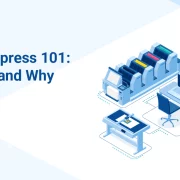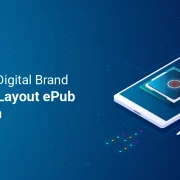
Insurance Training Programs to Empower Professionals for Future Success
Summary
Explore training programs designed to empower insurance professionals. This article discusses how specialized training can enhance skills and prepare professionals for future success.
In 2024, life is full of uncertainties due to various factors. On average, people can expect to live around 73.33 years. Despite the fast pace of time, businesses emphasize the importance of insurance in safeguarding individuals and families, ensuring they can access medical support and live happily regardless of challenges.
As technology advances, customers’ expectations also change, shaping how insurance services are delivered.
Insurance professionals should prioritize training modules within the industry to improve their skills. They should also embrace technologies like AI and data analytics to boost sales and meet customer expectations.
This article will cover the key benefits of insurance training programs and five practical training approaches.
Table of Contents:
- What are Insurance Training Programs?
- Benefits of Insurance Training Programs
- Five Effective Approaches in Insurance Training Programs
- Insuring and Empowering Insurance Professionals
What are Insurance Training Programs?
Insurance training programs are learning modules that focus on improving a professional’s soft skills to promote effective communication.
These programs also aim to boost their conceptual understanding of products so that they can determine which best aligns with their customers’ wants.
- These programs typically cover a wide range of topics including insurance principles, underwriting processes, risk management, sales techniques, customer service, and regulatory compliance.
- They can be offered by insurance companies, professional organizations, or educational institutions.
- These programs may vary in duration and format from short workshops to comprehensive certification courses.
Overall, insurance training programs play a crucial role in preparing professionals for successful careers in the field of insurance.
Also Read: The Future of HR: Exploring the Impact of AI Staffing Solutions on Recruitment Efficiency
Benefits of Insurance Training Programs
Through insurance training programs, participants gain a deep understanding of insurance products and practices.
This enables them to effectively assess risks, provide appropriate coverage solutions, and deliver exceptional service to clients.
1. Staying on Top of Rules and Regulations
Involving yourself regularly in various insurance training programs helps you be informed of the latest developments in rules and regulations.
2. Build Rapport in the Professional Community
Effective training methods are delivered by expert educators and often open you up to a forum filled with fellow peers.
This lets you connect with other insurance professionals and build relationships with experts.
3. Cultivating Technical Skills
Through tech-oriented insurance training programs, learners develop a more robust technical skill set and aptitude for futuristic software and tools.
This aspect is vital for future-proofing insurance professionals and their growth in the industry.
Five Effective Approaches in Insurance Training Programs
Now that we have understood how these training programs make professional development in insurance more seamless and fruitful, let’s take a look at how they can be effectively implemented.
Here are five approaches that accelerate the rate at which the benefits of insurance training programs can be brought to the surface:
1. Use AR to Boost Proficiency in Innovative Tools
Using Augmented Reality (AR), insurance training programs can transform a learner’s grasping power.
- Considering that AR learning modules are more real-life than online e-learning windows, they can help develop skills much faster.
- AR enhances proficiency by immersing professionals in interactive learning experiences. This ensures effective adaptation to innovative tools across various environments and industries.
2. Immerse in VR to Free Experiential Learning From Risks
Because of the business risk, insurance professionals often take a longer time to master certain skills.
In that aspect, advanced insurance training methods that incorporate Virtual Reality (VR) provide liberating experiential learning.
- VR learning offers simulated yet immersive environments.
- Learners can practice tasks like risk assessments and client presentations.
- It minimizes risks associated with brand reputation and business continuity.
- This provides a faster understanding of tasks.
3. Adopt ML Models for Personalised Roadmaps
It is important to acknowledge a learner’s individual needs and strengths. With the help of Machine Learning (ML) models, insurance training workshops can accommodate more variables and adapt a more personalized training plan for each insurance professional.
ML models can be programmed to incorporate performance reports, individual career aspirations, and other nuances to deliver adaptive learning.
This helps motivate the learner to quickly achieve their learning goals.
4. Focus on AI to Boost Predictive Skills
Artificial Intelligence (AI) is driven by algorithms that can take in data to learn and predict learning needs.
- Prioritizing the integration of AI within insurance training programs enables professionals to elevate their predictive skills crucial for the industry.
- By leveraging AI technology, participants can analyze extensive data sets to forecast trends, risks, and customer behaviors accurately.
- This predictive insight equips insurance professionals with the ability to make informed decisions, refine underwriting processes, and tailor insurance solutions to meet evolving client needs effectively.
By focusing on AI within insurance training programs, professionals can stay at the forefront of industry advancements. This ensures their readiness to navigate complexities and seize opportunities for growth and innovation in the insurance sector.
5. Infuse Microlearning for Learning Continuity
Since every industry has enormous growth potential, learning is a continuous process. Traditional training modules incorporate approaches that take time to complete and implement. This makes acquiring multiple business skills challenging and less motivating.
Microlearning is a learning method that delivers information in smaller bits and focuses on achieving specific goals in a shorter period.
Adopting microlearning in insurance training programs allows learners to effectively retain information, efficiently manage learning into work schedules, and boost their thirst for knowledge.
Also Read: The Role of Artificial Intelligence in Enhancing Medical Training Programs for Employees
Insuring and Empowering Insurance Professionals
Insurance training programs offer tremendous advantages for an organization and meet professionals’ career aspirations by equipping them with tools and skills that future-proof their place in the ever-changing landscape industry.
To reap the most of training in the insurance industry, all stakeholders must invest in the learning process by adopting effective learning approaches. These approaches include adaptive learning and microlearning along with technologies like VR, AR, and AI.
The learning solution experts at Hurix Digital can collaborate with you to meticulously design modules that boost the areas your business needs to focus on. Contact us to get started on your learning journey!

A highly enthusiastic and motivated sales professional with over twenty five years of experience in solution selling of training-related applications and services. Maintains an assertive and dynamic style that generates results. Ability to establish long-term relationships with clients built on trust, quality of service and strategic vision. Specializes in financial services, higher ed, publishing and government in the areas of learning and development.




